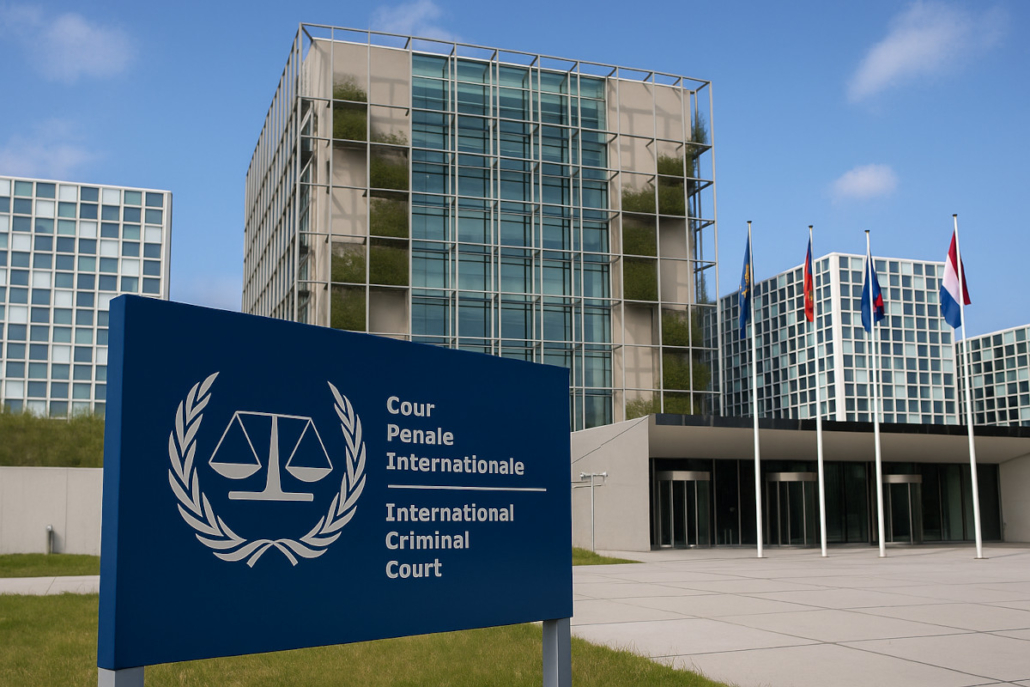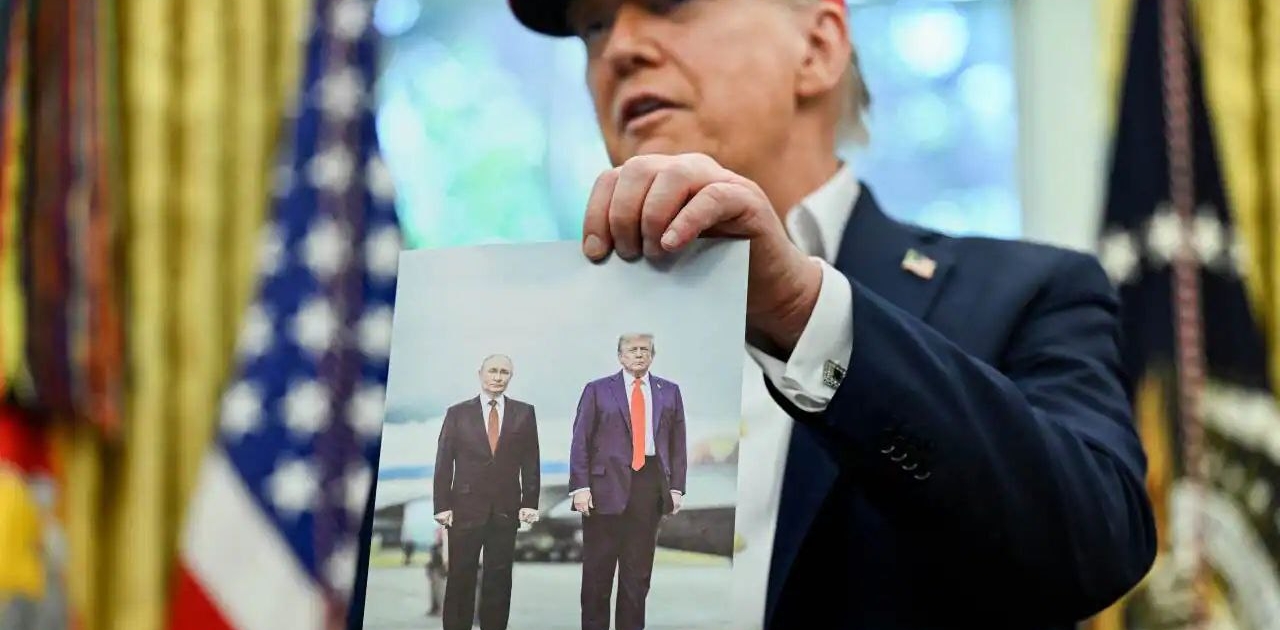Expanding the Role & Reach of the International Criminal Court
How lifting the sanctions and expanding the role of the ICC can end the wars, confusion and the suffering of millions.

Listen to this article.
A key goal of Project Open Democracy is to expand the role and reach of the International Criminal Court (ICC) to include all countries, with findings globally enforceable.
For over two decades, the ICC has been a beacon of international justice. Yet its reach remains partial, undermined by the refusal of major powers—including the United States, Russia, China, and India—to submit to its jurisdiction. This gap leaves much of the world’s population outside the protective scope of an institution designed to prevent atrocities, prosecute war crimes, and strengthen the rule of law.
The case for expanding the ICC is urgent and straightforward: without global accountability, justice is selective, power is abused, and criminals act with impunity.
The Moral Imperative

Across cultures and nations, there is a shared expectation that crime should not pay, and that even the powerful must answer for their actions. Yet today we live in a world where:
- A poor teenager may spend years in prison for minor drug possession while billionaires exploit women on private islands with impunity.
- Nations invade sovereign countries, destroy infrastructure, and kill civilians—yet their leaders continue to appear on global stages as if nothing happened.
- Financial institutions gamble recklessly, triggering crises that ruin millions of lives—yet not a single senior banker is held accountable.
Such injustices corrode trust in law and governance. A global ICC could help reverse this dangerous cycle.
Lessons from International Tribunals
The ICC did not appear in a vacuum. It grew out of earlier international tribunals that showed justice could be applied to heads of state and generals.
The most famous was the trial of Slobodan Milošević, President of Serbia and later the Federal Republic of Yugoslavia, before the International Criminal Tribunal for the former Yugoslavia (ICTY). Milošević was the first sitting head of state to face charges of genocide, crimes against humanity, and war crimes. Though the trial ended without a verdict when he died in 2006, it marked a turning point: the principle that no leader was immune to justice.
The ICTY, along with the International Criminal Tribunal for Rwanda (ICTR), paved the way for the ICC. Together, they proved that international law could hold individuals—not just states—responsible for atrocities. The ICC is their permanent successor.
The ICC’s Track Record
Since its founding in 2002, the ICC has delivered landmark rulings:
- Thomas Lubanga Dyilo (DRC, 2012): The Court’s first conviction, establishing the use of child soldiers as a crime against humanity.
- Ahmad al-Faqi al-Mahdi (Mali, 2016): A guilty plea for the destruction of Timbuktu’s cultural heritage, broadening accountability to cultural crimes.
- Bosco Ntaganda (DRC, 2019): Convicted of murder, rape, and sexual slavery, showing that even feared warlords can face justice.
Each conviction sends a message: international law applies to all, not just the weak.
The Hypocrisy of U.S. Sanctions
Yet when the ICC moves to apply justice even-handedly, powerful nations push back. Most recently, the United States imposed sanctions on ICC officials for seeking arrest warrants against Israeli Prime Minister Benjamin Netanyahu over alleged war crimes in Gaza.
This response is not about justice but about shielding allies from accountability. The message is clear: some leaders are untouchable, regardless of evidence. Such actions undermine the very principle of equality before the law and reveal how the current global order still bends to political expediency over shared morality.
If anything, these sanctions demonstrate why the ICC must expand. Justice cannot depend on whether a nation finds a ruling convenient. A truly global ICC would operate above political tribalism, treating all leaders—friends and foes alike—by the same standard.
A Shared Morality Over Tribalism
This vision aligns with the Freedom Declaration for Peace, which heralds a new era where shared morality replaces the corrosive tribalism that increasingly divides nations, politics, and societies.
Tribalism—whether along political, national, or ideological lines—encourages people to excuse crimes when committed by “their side” while condemning the same acts by opponents. It feeds polarization and makes lasting peace impossible.
A global ICC embodies the opposite principle: that crimes against humanity are crimes against all humanity, no matter who commits them. By affirming universal accountability, it reinforces a shared moral foundation that transcends borders, ideologies, and allegiances.
The Inevitability of Expansion
The expansion of the ICC is not only a moral necessity—it is becoming an economic inevitability. At the heart of Project Open Democracy is the Global Social Capital Fund (GSCF), designed not only to provide humanitarian aid but to serve as the foundation of a new kind of economy—one better suited to the information age of automation and artificial intelligence.
As automation reshapes labor and AI transforms productivity, the old industrial-age economy will no longer provide stability or dignity for billions of people. The GSCF offers a solution: a global pool of resources dedicated to strengthening societies, supporting citizens, and rewarding nations that uphold universally accepted standards and ideals.
For this reason, participation in the GSCF will be limited to countries that are open democracies, are ratified signatories to the the International Criminal Court and are signatories to the Paris Climate Agreement.
And here is the key: no leader will be able to deprive their citizens of access to the fund’s benefits, whether healthcare, education, or economic security. To block access in the name of shielding corruption or stymieing justice would be political suicide. People will demand both accountability and access—and that means submission to the ICC will become unavoidable.
In this way, the future expansion of the ICC is tied to the inevitability of the Global Social Capital Fund. Together, they represent the twin pillars of a post-industrial, AI-driven society: justice and shared prosperity.
The real prospect of Putin and Netanyahu ending up behind bars will force their subordinates to pause—either withdraw support or risk sharing prison cells. As support erodes, both regimes will weaken. Power will dissipate, emboldening domestic opposition and the many enemies they created in their pursuit of dominance.
A Clear Warning to the United States
This initiative also serves as a warning to members of the US administration, past and present, who assume they are immune from prosecution. It shows that justice may come faster than expected, and that even past crimes can be revisited.
Those who support war crimes—directly or indirectly, including through the supply of weapons—must know they, too, may face accountability.
Feedback and Call to Action
The promise of the ICC can only be fulfilled if people everywhere demand it. That is why Project Open Democracy invites you to make your voice heard:
→ Vote to both Expand the Jurisdiction and Lift all Sanctions on the ICC as part of the Three-step Solution to Ukraine and Palestine
Your feedback matters. By voting, you help shape a future where justice is not selective, where morality triumphs over tribalism, and where the Global Social Capital Fund delivers prosperity without corruption. A future where no one—not presidents, not generals, not oligarchs—is above the law.
Importantly, your feedback will send an unmistakable message to convicted leaders, their acolytes, and enablers: you are on notice. None of you are beyond accountability—justice is coming, and it will be swift.
That is the new era the Freedom Declaration for Peace calls us to build—an era of justice and dignity for all.
***
Disclaimer on ICC Advocacy
Plain-English Version
Project Open Democracy (PByT) speaks about the International Criminal Court (ICC) only in the context of ideas and debate. We don’t fund, assist, or take part in any ICC cases or investigations. Our role is simply to promote public discussion about how international justice can be strengthened.
Legal Version
Project Open Democracy (PByT) supports the principle of international justice and calls for the expansion of the International Criminal Court (ICC) solely as part of a public policy and educational dialogue. All statements, proposals, and publications are intended for advocacy and debate purposes only.
PByT does not provide, and does not intend to provide, any “material support or resources” as defined under U.S. law, including but not limited to the International Emergency Economic Powers Act (IEEPA), to the ICC, its officials, or any designated persons. PByT does not engage in, facilitate, or fund investigations, prosecutions, or enforcement actions by the ICC. Our activities are limited to public commentary and civic engagement and should not be construed as participation in or support of any specific ICC proceeding.


